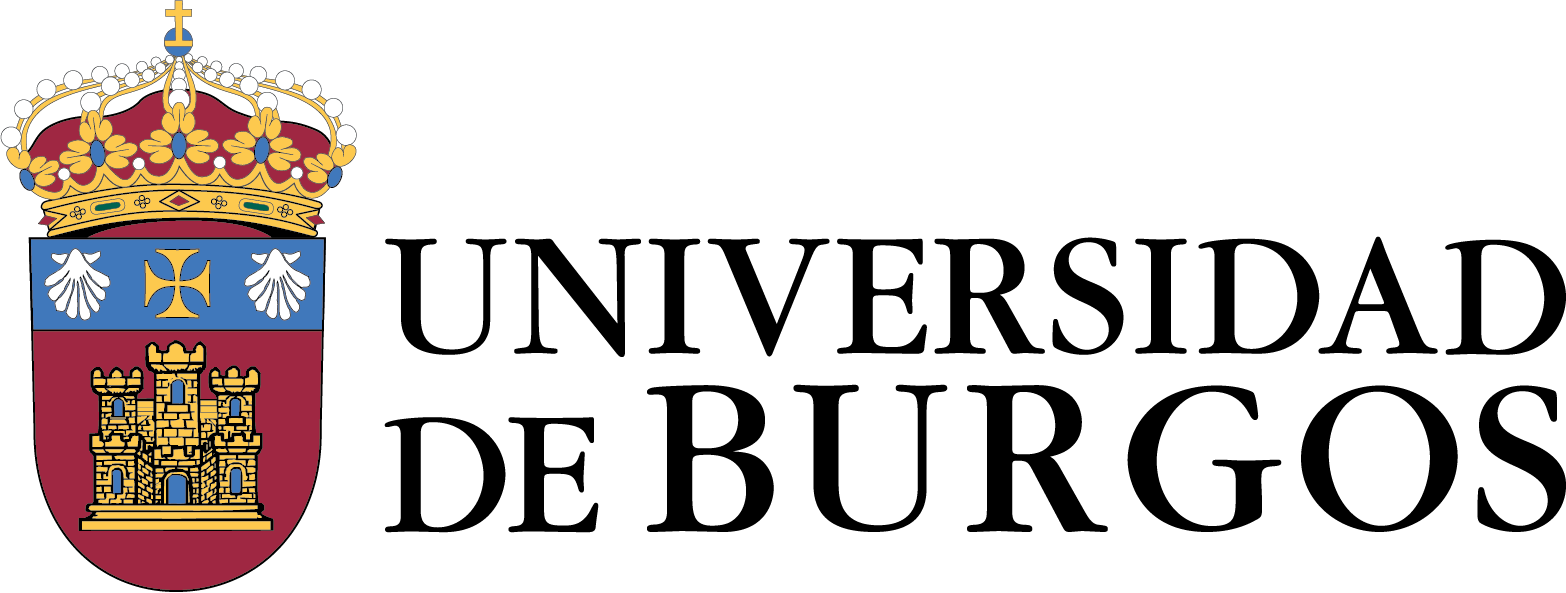About us
GaminGEE
Project description
“GaminGEE – GAMe-based tools to Foster an INtegrative model for early Gender Equality Education” aims to provide teachers and educators with guidance to identify and address inappropriate behaviours against gender diversity, provide support to those who suffer from gender diversity and guide young people towards understanding and tolerance of gender diversity.
Once the current situation has been analysed, the appropriate resources will be included in the guides for families and educators, and they will be emphasized through the video game, which will contain the practices of the educators/family guides presented in an attractive way to influence children and teenagers.
Specifically, GaminGEE tackles the problems of non-consensual sexual relations, dating and gender violence, discrimination against LGTBIQ + people and women and high-risk behaviours at present to overcome the barriers and difficulties that cultural reproduction and in particular, pop culture can increase. GaminGEE also advocates for the social inclusion of the LGTBIQ + community and any other sexual minority, paying attention to the violence suffered even in formal education settings such as schools.
In summary, the project aims at raising awareness and changing minds for eliminating violence through innovative practices deep-grounded in the present and the digital era. The results will be easily transferred and scaled-up at European and international level due to the Partnership’s geographical coverage, which ensures the socio-cultural adequacy of the resources and foundations, theories, and methods on which GAMINGEE relies upon.
Who is involved
Partner description

Universidad de Burgos
The University of Burgos (UBU) was created in 1994. It currently has 992 researchers, 426 administrative staff and around 7000 students. It is a public university that develops its mission with a comprehensive and quality education, close to the student, focused on internationalization and that, in just over 25 years, has become a benchmark in Spanish university research and in the transfer of knowledge to business. At this point, it is worth mentioning that it has been recognized by the Spanish Ministry of Education as a Campus of International Excellence (CEI). It has managed to occupy privileged positions both in Europe -among the 150 best, according to the Times Higher Education ranking- and in the world -among the 1000 best, according to the same ranking- and to become the axis of social and economic development of the province. At the same time, UBU is also part of the regional university-business strategy TCUE (https://www.redtcue.es/en/tcue/what-is-tcue), because its relations with companies have become strategic and are deployed for the benefit of student employability. In this context, it should be recalled that it has been accredited by The Human Resources Strategy for Researchers (HRS4R).
UBU has a working team composed of six people: four associate professors, one assistant professor and one pre-doctoral research fellow, who will be in charge of all the tasks related to the expected results of the project. They have previously worked together in applied research and have also collaborated in other European Erasmus+ projects. In addition, it is also worth mentioning that they have participated in different sex education and gender violence prevention programs throughout their professional careers.
This team is supported by a person from the OTRI, the Office for the Transfer of Research Results, who is in charge of managing part of the administrative procedures related to European projects. Thanks to the work of the team members, it has been possible to identify that part of the problems related to gender equality in older children and adolescents have their origin in premature access to adult content through multimedia devices (e.g. smartphones).

Asociatia GEYC
GEYC – Group of the European Youth for Change was established in 2010, being one of the first digital communities in Romania. GEYC currently has over 7000 members: young people, youth workers and teachers. They are active in the following areas: democracy and human rights, digital, entrepreneurship and sustainability. Among other things, GEYC aims to encourage the civic participation of young people, as well as promote sustainable development among young people. Since its foundation until now, they have worked together with over 200 organizations in Europe, their projects reaching over 10,000 young Romanians.
OBJECTIVES:
- Supporting and developing initiatives to encourage young people to be more active in the field of civic participation and to defend human rights in general through human rights education, intercultural learning and remembrance;
- Promoting social networks and new media technologies, personal and professional development of young people and youth workers through digital literacy and access to online resources and tools;
- Encouraging social, green and digital entrepreneurship by providing tools for young people and youth workers to increase their employability and competitiveness in the labour market;
- Promoting the UN Sustainable Development Goals (SDGs) among young people and developing initiatives focused on social inclusion, gender equality and environmental conservation.

Lastekaitse Liit
Estonian Union for Child Welfare (EUCW) is a non-profit umbrella organization that contributes to ensuring children´s rights and shaping a child-friendly society.
Founded in 1988, the union participates actively in a variety of national and international networks. Member organisations operate throughout Estonia. Estonian Union for Child Welfare follows the four core principles of the UN Convention on the Rights of the Child in its activities: non-discrimination; adherence to the best interest of the child; the right to life, survival and development and the right of the child to be heard.
What we do:
- We advocate for children’s rights and well-being;
- We influence society, including participation in the policy and law-making progress;
- We carry out national as well as international projects and programmes;
- We research and analyse the situation and opinions of children;
- We organise trainings, seminars and conferences;
- We issue information materials and publications.
EUCW supports the participation of children through the Youth Council (the Children’s Rights Ambassadors), which is establishes in 2004. The Youth Council is involved in organisation´s activities, projects and programmes in national and international level (member of Eurochild Children’s Council).
During the years Estonian Union for Child Welfare has long time expertise in the areas of children rights, that includes right to receive comprehensive, accurate, scientifically sound and culturally sensitive sexuality education, based on existing international standards. The right to receive comprehensive sexuality education derives from a range of protected rights, such as the right to live free from violence and discrimination. The organization has been advocating and working for developing child-friendly society through various activities, such as establishing hotline, raising awareness of preventing abuse and corporal punishment. EUCW serves as a good contact point with grassroots activities in spreading the ideas of the best interest of the child. EUCW is coordinating Estonian Safer Internet Centre project (SIC) “Smartly on the Web“. The mission of the project is a smarter Internet use by children and their parents and contribution to the stamping out child sexual abuse material from internet.
EUCW has been leading a preventive anti-bullying programme called “Kiusamisest vabaks!” (Free of Bullying) since 2010 in pre-schools, since 2013 in schools and since 2018 in nurserys. Currently approximately 80% Estonian pre-schools and 25 % of Estonian schools are joined. The pedagogical programme offers trainings and materials for specialists working with children and gives advice and information for parents about their important roles in preventing bullying.

Catness Game Studios
Catness Game Studios is a full-cycle game development company working with the best Unreal Engine games since 2014. It was created by an experienced, multidisciplinary team of programmers, artists, and designers who share a common passion: video games.
Catness expertise is to create, port, and publish with Unreal Engine to seek quality and innovation in each work. From the generation of an idea, through to its marketing, including technical and artistic development, Catness is able to be present throughout the entire life cycle of a video game

Kveloce I+D+i (Senior Europa S.L.)
Kveloce I+D+i (Valencia – Spain) is an SME specialised in the development, implementation and exploitation of R&D projects and their financing, with a track record of more than 15 years. Kveloce’s main focus is in the area of health and social innovation, in particular the evaluation of the socio-economic impact of innovation initiatives implemented to respond to major global challenges in relation to health, education, inclusion, wellbeing and human behaviour. Due to its track record and experience, Kveloce will lead the Quality and Ethical Assessment of the project and evaluate its impact throughout its life cycle.

Queer Geography, z.s.
QG is dedicated to promoting a holistic, syndemic, and thus biopsychosocial understanding of related social and health problems, issues, or challenges; in which sense it contributes to a more effective acceptance of sexual and gender diversity within the broader diversity of society, to breaking down stigma, discrimination, and to removing other normative, institutional, legal, or other barriers that reduce the quality of life for some people.
QG encourages interdisciplinary collaboration, streamlines knowledge transfer between disciplines, and supports new interdisciplinary fields such as the geography of sexualities, LGBTQ psychology, and social epidemiology.
The main thematic areas addressed by the QG are:
GEOGRAPHY OF SEXUALITIES: where do LGBTQ+ people feel most free? For what reason and purpose are so-called gay prides held? Why are there “gay bars” or entire “gay neighborhoods”? What is the difference between the life of LGBTQ+ people in cities and in the countryside? We address similar and other questions in Geographies of Sexualities.
SEXUAL CITIZENSHIP: In some countries they are granted rights, but not in others? What are the issues related to the lack of recognition of the human rights of women, LGBTQ+ people, or their right to control their own bodies, or the ability to form relationships, families? These and many other questions fall under the umbrella of so-called sexual citizenship.
LGBTQ+ PSYCHOLOGY: Why do only non-heterosexual people have to go through coming-out? Why do we automatically expect every person growing up to be heterosexual as an adult? What specific issues do LGBTQ+ people deal with throughout their lives in a heteronormative society? These and many other questions are addressed by LGBTQ psychology.
HIV & STIGMA SYNDEMY: Why do gay, bisexual and other men make up more than 70% of all new HIV infections? How does the stigma associated with being non-heterosexual or HIV-positive affect their access to health care? Are gay men simply promiscuous or more difficult to find a steady partner? We look at these and other questions through a syndemic approach.
QUEER AND FEMINIST THEORY: What is the basis of social norms? What is heteronormativity? How do queer and feminist theories interact? What is intersectionality? How is gender different from sex? Will artificial intelligence understand what a woman or a man is? What is sexuality anyway? Philosophy is the foundation of scientific knowledge.


